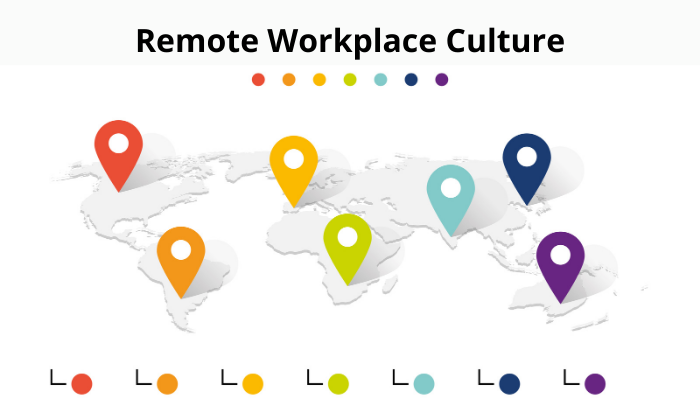Workplace culture undergoes a metamorphosis as teams meet less regularly in person and more than ever online. This sea-change necessitated by the coronavirus pandemic appears to be more of a lasting change than a transitory way of biding time before things return to ‘normal’.
Administrators and industry leaders unite in saying that this is likelier than not to be the ‘new normal’. However, this does not mean that workplace culture evaporates into thin air and employees discharge their job responsibilities while cocooned away from one another. On the contrary, the importance of a healthy and cooperative ambiance for workplace culture to establish and execute itself is the need of the hour.
Common barriers to developing a good culture in the workplace
Some industries and offices have made it a habit to keep offices running for long hours when conventional workplaces were functional. The post-COVID equivalent of such a company culture would now be one that virtually erases personal time for employees. This can quickly become toxic. In the race to not lose their income streams, employees can easily become insecure about their jobs and lean towards spending extra hours online. This is where the people-centric instincts of leaders should rise to remind team members not to overdo it.
These changes in the world of work mean that the most basic facets of leadership are now up for a round of re-examining. Leaders default to an employee-health-and-welfare-first type of prioritizing. It follows that they recommend working from home. They work towards positive work cultures, in which rewards and recognition continue to get communicated across the organization. Recognizing continued commitment and efforts of digital-savvy employees turns into a motivating factor for others who struggle to cope. An encouraging, thoughtfully-worded email recognizing efforts duly promotes the cause of developing organizational culture.
You might also be interested to read: Diversity And Inclusion Produce A Better Workplace Culture
Why is workplace culture important? Where it starts and how it translates into a positive stimulus
While workplace culture may not be defined by behavioral standards alone, it still has a heavy impact on employee morale and the productivity mindset. Workers simply cannot feel relaxed in a tense environment, even online. Added to the stress of job insecurity and dwindling profit margins, conveying the stress of unrealistic performance targets to an already-worrying workforce is a no-no for managers in this climate.
Timely communication through emails detailing welfare initiatives, learning opportunities, and suggestions for dealing with a deceleration in liquidity are welcomed by employees. Policy changes, promotions, and changes in disbursement of bonuses matter greatly to employees. It also shows the employees that they have someone looking out for them.
Open lines of communication, especially for teams with remote work culture, mean greater stress levels. They need employees to be ON round-the-clock. Workers distributed across time zones become prone to checking emails and messages at all hours. This should be actively discouraged by immediate managers. Measuring and monitoring work hours and quality often become a challenge for organizations – leaving them fewer hours for focusing on workplace culture. Clarifying expectations in weekly meetings and daily work huddles helps to coordinate virtual updating of time-sheets.
A good culture at the workplace begins with honesty: Managers who insist that each and every project is an emergency stand the risk of making their employees routinely ignore deadlines. Bringing in the team’s inputs on a reasonable timeframe for delivery and mutually agreeing on an end-date is more realistic.
Especially when the workforce is not in plain sight, communication from the management showing that they haven’t lost sight of employees’ priorities and motivations is reassuring.
Positive work cultures are those in which each employee feels heard – that they have the power and authority to influence a positive change. For employees working from home, a workplace culture that actively solicits and encourages their participation without encroaching on personal time stands supreme.
References:
- How leaders can create a good workplace culture remotely for their employees | Elite Business | Amrit Sandhar | April 13, 2020
- Your Work-From-Home Employees Are Burning Out. You Can Help | Inc.com | Suzanne Lucas | May 12, 2020
- Will work from home be the new normal for India? | The Economic Times | Suhita Roya | May 8, 2020
You might also be interested to read:
Related Topics:





